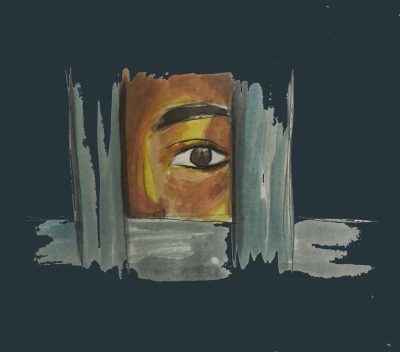Part 2: Cobalt mining and batteries
Let’s talk about cobalt. You might be wondering what cobalt is and why you should care about it at all. Truth be told, I didn’t know much about cobalt before writing this article, but I have realized it is an enormously important material that is being mined through slave labor across the world.

What is cobalt? Well, it’s a metal used for just about everything in the modern world, from dietary supplements for sheep to the batteries in your phone, computer and pretty much any other electronic device. The technology industry has become enormously dependent on cobalt.
However, cobalt reserves are diminishing quickly, and mining it imposes a massive human cost. In the Democratic Republic of Congo — one of the few countries with an abundance of cobalt — miners work in horrific conditions. Given its large supply of raw materials, one might think the DRC is a wealthy country, but it is not as a result of generations of exploitation rooted in colonialism.
Belgium was the first country to colonize the DRC. People were initially exploited for rubber and other materials. When those workers did not meet the production quota, their limbs were chopped off by authorities. Then, when the Congo wanted independence from its colonial oppressors, political leader Patrice Lumumba was executed by a United States-backed coup because the Western powers felt threatened by his endeavor to control Congo’s resources.
The U.S. and China are two global powers that have continued to hoard the DRC’s resources, and cobalt is just the latest in their mineral addiction.

Cobalt mining typically takes place in private mines with little to no protection for workers. Accidents are often unreported, and bodies are buried in the mines. Workers don’t have protective gear, masks or a comprehensive understanding of mining — they’re often children.
These horrible conditions aren’t safe for anyone, let alone a child. The kids who work in these mines earn around 75 cents per day for an incredibly dangerous job. They risk broken limbs, cracked spines and death every time they go to work.
I’ve told you all about the horrible conditions in cobalt mines, but why should you care? You’re reading this article in relative security — at least compared to the child miners in the DRC.
Since you asked, I’ll assume you are reading this on an electronic device. The minerals that make up the battery of your device could have come from a mine in the DRC. How do I know this? Well, a great deal of the world’s cobalt comes from the DRC — upwards of 50 percent.
Most of this is sold to Chinese refinery Zhejiang Huayou Cobalt, which sells to battery manufacturers like LG Chem that make batteries for tech companies such as Apple, Samsung and Microsoft. Your iPhone battery could easily have gone through this production chain.
The cruelty of exploitation reaches into every aspect of our lives, and it’s nearly impossible to disengage from the supply chain of slave labor.
If you’re like me, you might be wondering what we can do about this. Well, some companies are starting to move away from cobalt batteries, and we must ensure they do. It is also important we know about these human rights violations so we can put an end to them. And, you can always sign petitions and help educate those around you.
Well, this is the end of my series on slavery. Because of capitalist greed, it seems as if the issues I’ve discussed will always stick around. But we cannot give up on the goodness that is still left within us. If we can capitalize on humanity rather than money, we can fix many problems in our society.






















































































































